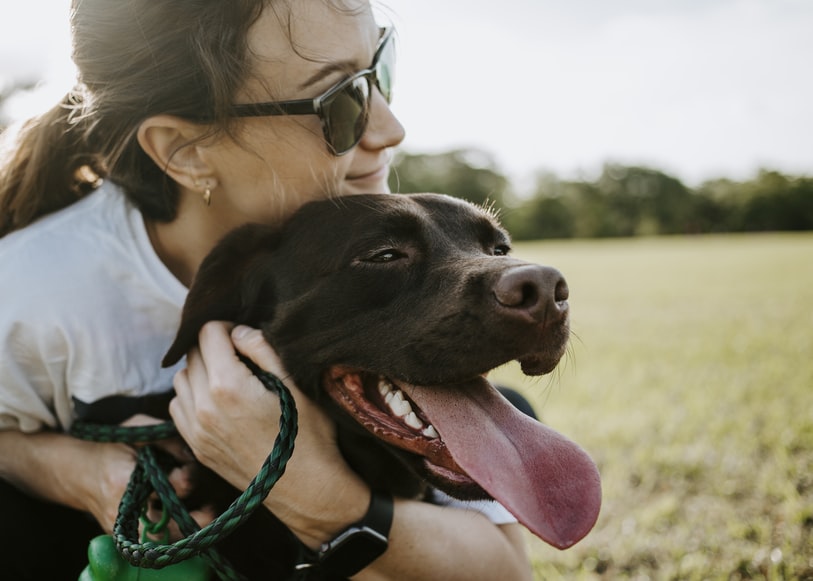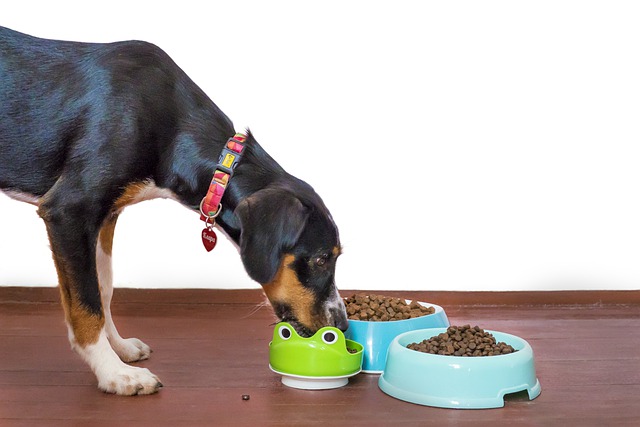In recent years, grain-free diets for dogs have become more and more popular, with grain-free food options becoming a common choice among responsible dog owners who only want the best diet, lifestyle, and health for their pets. While there are still plenty of kibble brands and other commercial dog foods available that are not necessarily unhealthy for your dog to eat, these are becoming less popular since they are filled with wheat, corn, and soy. Grain-free dog food options do not contain all of these common ingredients. Instead, feeding your dog a grain-free diet means that they get fewer carbohydrates and a diet that is richer in protein, meat, and animal fats.
Is grain-free food better for your dog? Raw feeding, grain-free dog food brands, and bone broth are all becoming popular choices for a dog’s diet, but there’s still a lot of debate around it. The truth is that every dog is different, with varying dietary requirements, so just like with people, what works well for one dog might not be great for another. As a pet owner, it’s up to you to be aware of what your dog needs. Speaking with your vet can help you determine your dog’s specific dietary needs and decide whether or not switching to grain-free feeding is going to be the best choice for your pet.
Below are some of the main reasons why some dog owners are switching their pets to a grain-free diet.
Better Nutritional Content
For most pet owners, their dog is a main member of the family, and looking after their health and nutrition is important. Sadly, many commercial dog foods are packed with large quantities of grains that are mainly included to bulk out the product and keep production costs down to make a larger profit. As a result of this, commercial dog foods are often cheap to buy but have very little nutritional value for dogs due to the main ingredient being grains and carbohydrates. On the other hand, many pet owners agree that grain-free dog food is worth investing more in since it has a much better nutritional content for dogs including meat and fish proteins and vegetables, providing your beloved pet with a much more balanced diet.
Improved Digestion
Dogs are biologically unable to digest many grains, which can lead to digestive problems if a dog is a regularly fed food that is high in ingredients like wheat. Grain-free dog food options like bone broth can help to improve digestion in dogs since they contain much fewer carbohydrates and more protein, making them easier to digest. Bone broth for dogs is easy to make at home or you can purchase pre-made versions for your dog to help with digestive issues. According to Native Pet, bone broth for dogs can also help with your dog’s gut health and reduce the risk of leaky gut. If your dog is suffering from digestive issues, Native Pet offers a wide range of products that may benefit.
Healthier Coat
Many pet owners say that switching their dog to a grain-free diet helped to improve the condition and health of their coat. Unfortunately, most standard dog food that is made with grains does not provide your dog with the full range of oils and nutrients that they need to maintain healthy skin and fur. Since it is much higher in protein and omega-3 fatty acids, it’s no surprise that switching a dog to a grain-free diet often means that you see improvements in the softness and shine of their coat quite quickly. More protein in their diet means that a dog’s coat is likely to be stronger, healthier, thicker, and shinier, which reduces shedding and malting too.
More Energy
A dog that doesn’t seem to have as much energy as you would expect them to have for their breed and age might be suffering due to their diet. If your dog is lethargic and tends to get tired quickly after walking even though they are young, fit, and healthy, you might notice a change if you switch to feeding grain-free. This is because the main source of energy for dogs is protein, and a lot of commercial kibbles and dog foods just don’t contain enough of it to provide your dog with the energy that they should have right now.
Help with Allergies
A switch to a grain-free diet is often recommended for dogs that suffer from food allergies. When it comes to food allergies in dogs, corn and wheat are two ingredients that are very likely to lead to symptoms. Some common signs that your dog may be allergic to their food include signs that they have an itchy butt, licking their feet excessively or diarrhea that lasts for longer than twenty-four hours. Some dogs might be allergic to certain meats and proteins that are present in their food; however, carbohydrates and grains tend to be a much more common culprit. If you are concerned that your dog might be allergic to a food ingredient, contact your vet who will be able to help you put your dog on an elimination diet to determine what is causing the symptoms.
Better Breath
If you’ve ever pushed your dog away because they have stinky breath and got too close to your face, then you’ll know that it can be an unpleasant experience that many pet owners have had to deal with. Sometimes, your dog might have bad breath because they have eaten something that they shouldn’t or need a dental chew, but if your pet persistently suffers from bad breath problems, this could be a sign that they are not getting the right diet. Your dog’s dental health is largely impacted by their diet, and bad breath can be a sign of poor nutrition. In fact, many pet owners who changed their dog’s diet to a grain-free one said that their dog’s breath also improved a lot.
Weight Management

If you need to watch your dog’s weight, swapping to a grain-free diet can be a beneficial move. Dogs that eat a diet that is rich in carbohydrates are often more prone to putting on excess weight, especially if they are not getting enough exercise. This is an increasingly common problem among dogs who are on a regular kibble diet if they do not get out for several walks a day. On the other hand, grain-free food for dogs is much lower in carbs and tends to have higher amounts of healthier carbs like sweet potatoes, which are less likely to cause a dog to gain weight.
Making the Switch
If you think that your dog might benefit from a grain-free diet, there are a few things to keep in mind before you swap their food over. Gradually switching to a grain-free diet can be a good idea since this will give your dog a chance to adjust to the changes to their food and avoid issues with digestion. A sudden change could cause your dog to have an upset stomach or even cause anxiety if your dog’s blood sugar levels are suddenly changed as a result. Start adding grain-free food to your dog’s meals each day and reducing the amount of their old food a little more daily while keeping a close eye on them.
More and more pet owners are switching their dogs to a grain-free diet for a number of benefits. With more meat, protein, and healthy nutrients, it’s no surprise that dogs enjoy and benefit from grain-free food, bone broth, and other more natural meals.




